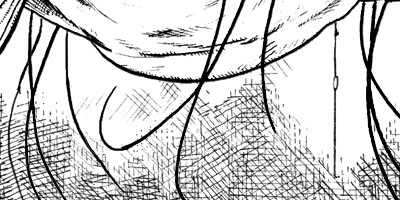Nobody has arguments like Doctor Who fans have arguments. There, I’ve said it and I’m not going to take it back. Sure, “Trek” fans have their “Kirk vs. Picard” debates. Yes, “Buffy” fans constantly argue about whether Angel or Spike is Buffy’s One True Love. (Riley never gets a fair shake in those debates.) And sure, “Battlestar Galactica” fans constantly argue about whether the ending of their series was incoherent gibberish, or whether the entire series was just as awful. (I assume.) But Doctor Who fans? We have arguments older than a good percentage of the audience. We have arguments that actually get summed up in books. “Which Doctor is better, Four or Ten?” That barely even scratches the surface. Here’s a quick guide to the big Doctor Who arguments, the evidence for and against each side, and the episodes you can watch to start forming your own irrational opinions.
1) UNIT Dating. When Jon Pertwee took over as the Doctor from Patrick Troughton, it was accompanied by a radical shift in the series’ format. Instead of traveling to alien worlds with his companions to fight monsters, the Doctor was exiled to Earth sans TARDIS, and fought monsters right there in Britain alongside UNIT (a United Nations division tasked with investigating the strange and unusual.)
At the time, the publicity materials announced that this was to be the England of the near-future, and the technology is certainly more advanced than the era in which it was made. (Britain has a fully-fledged space program in “The Ambassadors of Death”, there’s a female Prime Minister in “Terror of the Zygons”, and similar bits of anachronistic tech and unusual fashion.) But clearly, making the series “futuristic” was not in the front of the mind of the production team, and they missed a lot of things that clearly dated the series to the era it was filmed in. (You can see pre-decimal currency signs in shops, they mention Mao Zedong in the present tense, and most of the fashions and all of the haircuts scream “70s”.) By the time the series revisited the era, in the mid-80s, they had totally forgotten about the “future” aspect and set a date for the Brigadier’s retirement in 1977. (Meaning all UNIT stories had to take place before then.) This clearly conflicts with companion Sarah Jane’s comment in “Pyramids of Mars” that she’s from 1980. Only one of these can be right. Pick a side and ignore all the evidence to the contrary, and you’re set!
2) Are the Spin-offs Canon? At the time it came out, the book “No Future” seemed to settle the “UNIT Dating” issue by showing the events that led to the Brigadier’s retirement and setting them in 1976. When the book was published, moreover, the TV series was on an indefinite hiatus and the books were the officially licensed continuation of the show. But then, in 1996, FOX came out with a TV movie that picked up the story with the Seventh Doctor’s regeneration. The books gamely rallied, filling the gap between the novels and the TV movie and continuing on with the new adventures of the Eighth Doctor, but then…
In 1999, Big Finish Productions obtained the rights to do audio plays for Doctor Who. They set up their own competing Eighth Doctor series that became increasingly difficult to reconcile with the books, and canon wars started over which was the “true” timeline. Then, to complicate things further, the TV series came back as well. The TV show has adapted some of the book and audio stories, seemingly rendering them “non-canonical”, but has explicitly contradicted very little of the information in either (about the same amount as it has of the old TV show. Doctor Who creative teams don’t tend to have the same priorities as the fans.) So at the moment, the books and audios are in limbo. There have been clever attempts to work around this (involving the Land of Fiction, or alternate realities) but none of them have been satisfying.
3) Is the Eighth Doctor Half-Human? (Much thanks to my girlfriend for reminding me about this one.) When the TV movie came out in 1996, it was…not entirely well-received, to put it mildly. There were a lot of people who tried to deny that it had ever happened at all, even as he went on to star in seventy-nine novels and sixty or so audio plays. They finally acknowledged the canonicity of the TV movie when the new series showed him in flashback as one of the “official” Doctors, but they continue to insist that the TV movie can’t be an accurate representation of the events of his regeneration. Why? Because the Eighth Doctor, in a moment of either unprecedented honesty or mad whimsy, mentions to a scientist that he’s half-human. (On his mother’s side.)
This is not something Doctor Who fans like. It contradicts a lot of the canon established in the books (but see above.) It establishes the Doctor as part of a biological family, which means that his parents–and quite possibly the Doctor himself–might have squishy bits that they enjoy using (but see below.) And it’s a staggeringly stupid sci-fi cliche which offers no storytelling possibilities at all. Everyone seemed to have agreed not to mention it…until Russell T Davies’ grand finale to his era as Doctor Who showrunner, where he introduced a mysterious Woman In White, who had an unspoken but deep connection to the Doctor and who he recognized as a Time Lord. And she also had a mysterious, unspoken connection to Bernard Cribbins’ character, who could see her and who the Doctor described as someone he’d be proud to have as a dad. Mutated version of the TV movie’s “half-human” idea? Or terrible plot cul-de-sac to be buried forever? You decide!
4) Does the Doctor Have Sex? There’s certainly no on-screen evidence. Sure, he’s surrounded by nubile young women, and sure, the new series seems to show him all lovey-dovey in a chaste fashion. And sure, he mentions that he was a father, and sure, back in the very first episode, he was traveling with his grand-daughter…but does that mean he has sex?
A lot of fans say “no”. They feel that sex is a distinctly human quality, and part of the Doctor’s essential “alien-ness” is that he doesn’t show much, if any, interest in sex. (The classic line, from Douglas Adams’ script for “City of Death”: “Well, you’re a beautiful woman, probably…”) For a big contingent of fans, the Doctor even functions as an iconic gay sci-fi hero. Sure, he doesn’t overtly snog guys, but at the same time, most of his female relationships have a certain “Will and Grace” quality to them. These fans have come up with some fairly elaborate rationales for the presence of biological relatives like Susan (see below) and ignore everything but the most blatant evidence of sex. (They ignore the most blatant evidence, too.)
5) Lives Before Hartnell. The same rationale that explains Susan’s existence in a fairly convoluted fashion (look up “Lungbarrow” if you want to know) also explains away one of the most tantalizing bits of fanservice in the series: The extra faces you see in “The Brain of Morbius”. See, the Doctor and Morbius (an evil Time Lord who tried to conquer the universe from exile, and was reduced to a brain in a jar) have a “brain-bending” duel, where they’re placed in direct telepathic contact and try to regress each other’s minds to infancy. The regressed lives are shown as faces on a handy screen, and it seems like Morbius handily pushes the Doctor back through his third, second, and first incarnation…and then eight more faces appear on the screen before Morbius’ brain explodes from the strain. The production team at the time claimed that these were intended to be pre-Hartnell incarnations, suggesting several lifetimes’ adventures before “An Unearthly Child”. Every subsequent production team has ignored this, setting clear limits on the number of Time Lord incarnations, specifying their order, and establishing Hartnell as the first.
And yet, like the “Paul Is Dead” myth, this one will not die. Believers of the pre-Hartnell theory come up with elaborate explanations as to how the Doctor could have lived more than thirteen lives, pointing to the Fifth/Thirteenth Doctor’s cryptic dialogue (“I might regenerate…feels different, this time…”) and the erratic post-regenerative personality of the Sixth Doctor as hints that the regeneration was a truly unique event that has yet to be explained. (These people are insane. Argue with them at your peril.)
Those are the top five, but there are undoubtedly a ton I missed. Forty-seven years of continuity will generate that sort of thing. Feel free to mention yours in the comments!




